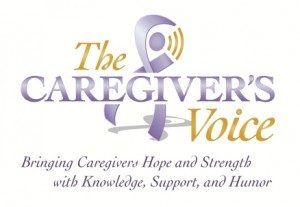It’s normal to forget about certain details every once and a while, or question an event that happened recently. But for some people, memory can be a bigger challenge. It can cause hindrance in relationships, in the workplace, and in families. Sometimes there is a mental health disorder that could be factoring into your thought patterns. Other times, you may just need to explore options that work for you when it comes to remembering important dates, scheduling conflicts, and impactful moments in your life.

Some people have more trouble than others at remembering tasks, instructions, dates, and events. It’s important to be honest with yourself about any issues you may be having with memory in order to tackle it head-on. Being forgetful can impact relationships, your job and cause stress that is difficult to manage. By taking an honest and open approach to challenging your forgetfulness, you can use tools and tricks to help you remember.
If you feel issues with memory could be related to a mental health disorder, consider reaching out to a mental health specialist. Online therapy, like the ones offered at BetterHelp, can help you figure out if your forgetfulness can be linked to something bigger than that. Proper treatment for the disorder can help you with your memory.
Embrace Technology
For some people, using technology can make a big difference in remembering important dates. By adding alarms to your phone, or using a digital calendar, you can set yourself up for success. This goes for long-term dates as well. For birthdays, you can set a yearly reminder so that you never forget your Aunt Suzie’s birthday again. These little tools can make a big difference for dates that can slip through the cracks during busy times in life.
Though these practices may take some time to adjust to, over time, it can start to feel like second nature. Though it can be easy to think to ourselves, “well I’ll remember, I don’t need to set a reminder,” sometimes life can make balancing everything challenging. Even if you do remember without the reminder, it serves as a backup plan for you to make sure that nothing flies under the radar.
There are also applications that you can download directly to your phone that are designed to help with memory over time. Even taking 5 minutes a day to focus your brain in that way can make a difference. Plus, these apps are generally fun and engaging. Using them as a helpful tool is a great way to improve and sustain memory over time.
Accept Reminders As Support
For some people, being reminded by their loved ones of important dates and events can feel annoying. Though you may feel defensive when your partner or family member makes an effort to remind you of something that’s important to them, remember that it’s coming from a good place. They’re looking to help support you in a way that will help, and not hinder you.
If you don’t like the delivery of these reminders, let your loved one know. Communicate with them about the most helpful ways for them to talk to you about these things so you don’t feel judged. By making efforts on your own to remember important dates, along with approaching these situations with an open heart, you can work with others to make sure you don’t forget anything important. For example, leaving sticky notes around the house may be a better avenue for them to remind you, rather than verbally. Working as a team also gives you the chance to form an even stronger bond and mutual understanding.
Some people like getting a simple text message or phone call from someone they love with a reminder, whereas others find it bothersome. If you have a pattern of forgetting important tasks, times, or dates, be understanding of their inclination to do so. It can take time and patience to build trust when forgetfulness is at the core of the conflict.
Adapt As You Go
One big reason people forget things at times? Because they’re overwhelmed or burned out. If it feels like you have a million things to do on a given day, chances are, you may want to look at making some lifestyle changes. It’s important to take time to unwind, take care of ourselves, and relax. Stress can be dangerous for your mental health and wellbeing, and by taking steps to combat it, you can help your brain work in your favor.
Adapting to new situations, transitions and schedules can take time. Be patient with yourself, and continue to find new ways to keep track of what’s important to remember. Some people like using lists and sticky notes, while others like using alarms. It’s all about you finding the right balance of behaviors that will help keep your memory in check.
It’s also important to remember that slip-ups happen. Sometimes you might forget something important, and that’s okay! It’s also understandable that the people that are affected by it feel disappointed or hurt. The best way to move past these kinds of situations is to take accountability, apologize and make efforts to not let it happen again.
There are several mental health disorders that can affect memory, such as depression, ADHD, and PTSD. If you’ve been previously diagnosed with any mental health disorder and believe that it may be affecting your memory, speaking to a therapist can be helpful. They have tools and tricks that you implement into your life to aid your memory and keep you excited about the future.

Photo Credit: iStock
The post Struggling With Memory appeared first on The Good Men Project.
Original Article










